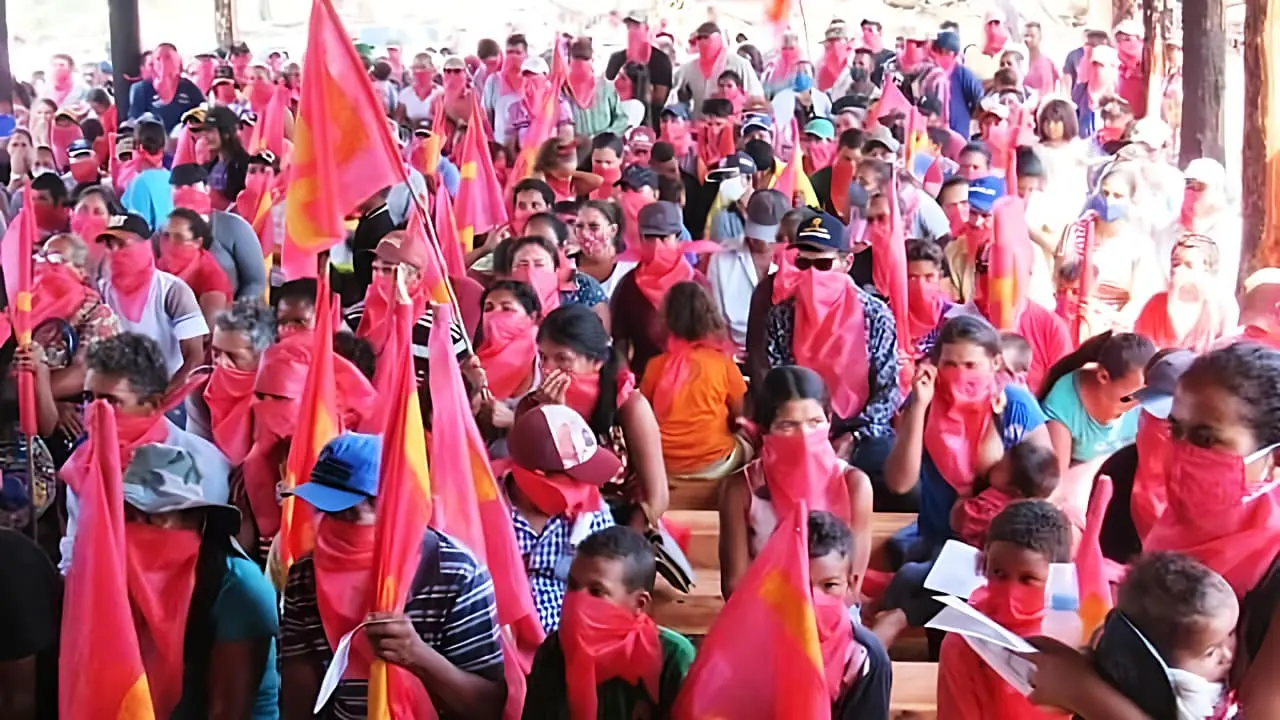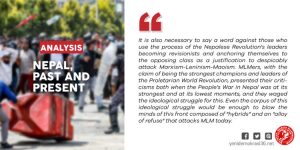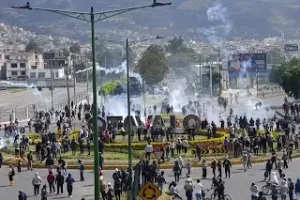
Brazil: “Anti-Terrorism” Bill Targets People’s Struggle
This week, the Brazilian lower house of Congress urgently approved Bill No. 1,283/2025, which amends the Anti-Terrorism Law to classify “factions” and “militias” as terrorists. A Nova Democracia (AND) explains that the real goal is to criminalize people’s struggle and especially aims to attack the Agrarian Revolution in the country, which has been growing for years. This bill amends the existing “Anti-Terrorism Law” from 2016, which was enacted at the time by Dilma Rousseff of the PT. AND spoke out about this law when it was enacted, explaining that all actions labeled as terrorism were “the ways in which just rebellion expressed itself in the youth protests of 2013-2014.”, and added that this law actually was “an anti-protest law.”
As evidence of this, the text defines as “terrorism” as acts “motivated by political reasons or to impose dominance or control over territories.” This would legitimize the old Brazilian State to unleash a much more brutal offensive against the peasant occupations that typically occur in the country. Currently, the latifundium along with the old State, is attacking the Valdiro Chagas Revolutionary Area in Rondônia. The bourgeois press has been criminalizing the struggle for land for a long time, along with the repressive forces led by the criminal commander of the Military Police of Rondônia, Régis Braguin, who demands that the League of Poor Peasants (LCP) should be classified as terrorist. Meanwhile, the Special Operations Battalion (BOPE) of the Brazilian repressive forces is murdering peasants in Rondônia with impunity and without judicial justification:
Terrorism is also defined as “sabotage or disruption of critical infrastructure.” This means that the activists who are carrying out the usual roadblocks during protests by indigenous peasants, or residents of popular neighborhoods protesting the lack of services and the murders they face in the favelas, might be charged with terrorism.
The proposed prison sentences would range from 12 to 30 years for the accused. Additionally, the bill also allows freezing of assets “and mechanisms of international cooperation,” supposedly to target “sources of funding.” It also criminalizes what it labels as “preparatory acts” or “any form of collaboration” with organizations considered “terrorist.” Thus, it aims to criminalize not only the actions deemed as “terrorist” but also any expression of support.
AND explains that Brazilian legal experts, such as Camila Asano, director of Conectas Human Rights, point out that “the wording is vague and flexible, which allows for interpretations that affect protests and people’s mobilizations.” Recently, we shared a statement and a request for signatures jointly organized by the Brazilian Association of People’s Lawyers – Gabriel Pimenta (ABRAPO) and the Brazilian Center for Solidarity with the Peoples (CEBRASPO), denouncing the criminalization of the struggle for land and specifically denouncing the targeting of the LCP, a leading organization in the Brazilian peasantry’s struggle for land and for their rights:
AND points out that, despite the fact that the real “militias” are “actually far-right paramilitary and State-affiliated groups entrenched in the old State,” these are not the target. A group that fits these definitions of a terrorist militia would be Invasão Zero, a paramilitary group, but it is not the focus of the criminalization and criticism from the police and bourgeois media. Despite the evidences against groups like Invasão Zero, the target are the people, their organizations and their mobilizations.

